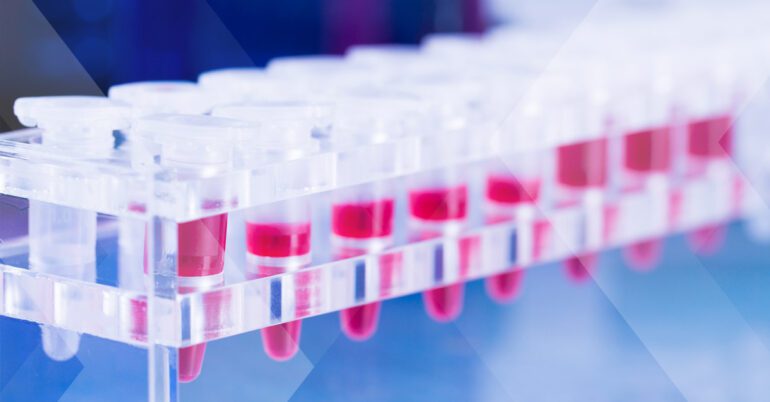TL;DR:
- Machine learning algorithms aid in diagnosing specific cancer types and choosing effective treatments.
- Liquid biopsies, based on blood draws, replace invasive tissue biopsies.
- UW-Madison researchers develop a machine-learning-based analysis technique.
- Cell-free DNA fragments from blood samples are used to identify cancer types.
- The machine learning algorithm achieves over 80% accuracy in cancer diagnosis.
- It can distinguish between two subtypes of prostate cancer, including the aggressive NEPC.
- Liquid biopsies offer advantages, such as ease of monitoring and patient convenience.
- The approach reduces testing time and costs using existing sequencing panels.
Main AI News:
Groundbreaking advancements in machine learning have paved the way for a significant leap in cancer diagnosis through liquid biopsy. Researchers from the University of Wisconsin–Madison have developed a novel analysis technique, featured recently in Annals of Oncology, which harnesses the power of machine learning algorithms to detect specific cancer types and determine the most effective treatment options based on short DNA fragments present in the bloodstream of cancer patients.
The beauty of this innovative approach lies in its compatibility with existing “liquid biopsy” testing equipment, already approved for use in cancer clinics across the United States. Liquid biopsies offer a far less invasive alternative to traditional tissue biopsies, which can be challenging or even impossible in certain tumor locations. Dr. Marina Sharifi, an esteemed professor of medicine and oncologist at UW–Madison’s School of Medicine and Public Health, emphasizes that liquid biopsies can be conducted multiple times throughout a patient’s disease progression, allowing for better monitoring of cancer status and treatment response.
In essence, cancerous tumors release genetic material known as cell-free DNA into the bloodstream as they grow. However, not all portions of a cancer cell’s DNA are equally likely to detach. Certain DNA regions, containing frequently used cancer cell genes, tend to be uncoiled more often, making them more prone to fragmentation.
Dr. Kyle Helzer, a bioinformatics scientist at UW–Madison, explains that leveraging this variation in the distribution of DNA regions in cell-free DNA helps identify different cancer types. By training a machine-learning algorithm with blood samples from nearly 200 patients (including both cancer and non-cancer cases) and additional samples from over 300 patients treated for breast, lung, prostate, or bladder cancers, the research team achieved impressive results.
The samples were divided into two groups, with one used for algorithm training and the other for testing. The machine-learning algorithm demonstrated over 80 percent accuracy in translating liquid biopsy results into both a cancer diagnosis and the specific type of cancer affecting a patient.
Notably, this advanced approach even distinguished between two subtypes of prostate cancer: the common adenocarcinoma and the more aggressive neuroendocrine prostate cancer (NEPC), which is resistant to standard treatments. Diagnosis of NEPC has traditionally required a needle biopsy, which can be inconclusive despite high clinical suspicion. However, the machine-learning technique offers a more precise and less invasive alternative.
Moreover, the liquid biopsy process presents additional advantages, as pointed out by scientist Jamie Sperger. There is no need to identify a specific tumor site for biopsy, and patients can conveniently undergo a standard blood draw.
The team utilized cell-free DNA sequencing technology provided by Integrated DNA Technologies, an Iowa-based company. Remarkably, they used standard panels similar to those already used in clinics, which significantly reduced testing time and costs compared to other “fragmentomic” methods of analyzing cancer DNA in blood samples.
Lead researchers, Professor Shuang (George) Zhao from the Department of Human Oncology and Professor Joshua Lang from the Department of Medicine, are thrilled about the transformative potential of this machine-learning-driven liquid biopsy approach. By utilizing existing panels and targeted genes, they have demonstrated the ability to accurately identify the specific cancer type afflicting a patient.
Conclusion:
The integration of machine learning with liquid biopsy presents a game-changing development in the cancer diagnostics market. The ability to accurately diagnose specific cancer types and differentiate between subtypes, along with the convenience and cost-effectiveness of liquid biopsies, has the potential to revolutionize cancer care. This innovation is likely to attract significant interest from healthcare providers, research institutions, and biotechnology companies, driving the demand for advanced liquid biopsy technologies and machine learning solutions. Moreover, this technology’s compatibility with existing equipment and panels may offer a competitive edge to companies that can swiftly incorporate these cutting-edge solutions into their offerings. The market is expected to witness rapid growth as healthcare stakeholders embrace this novel approach to enhance cancer detection and treatment outcomes.

